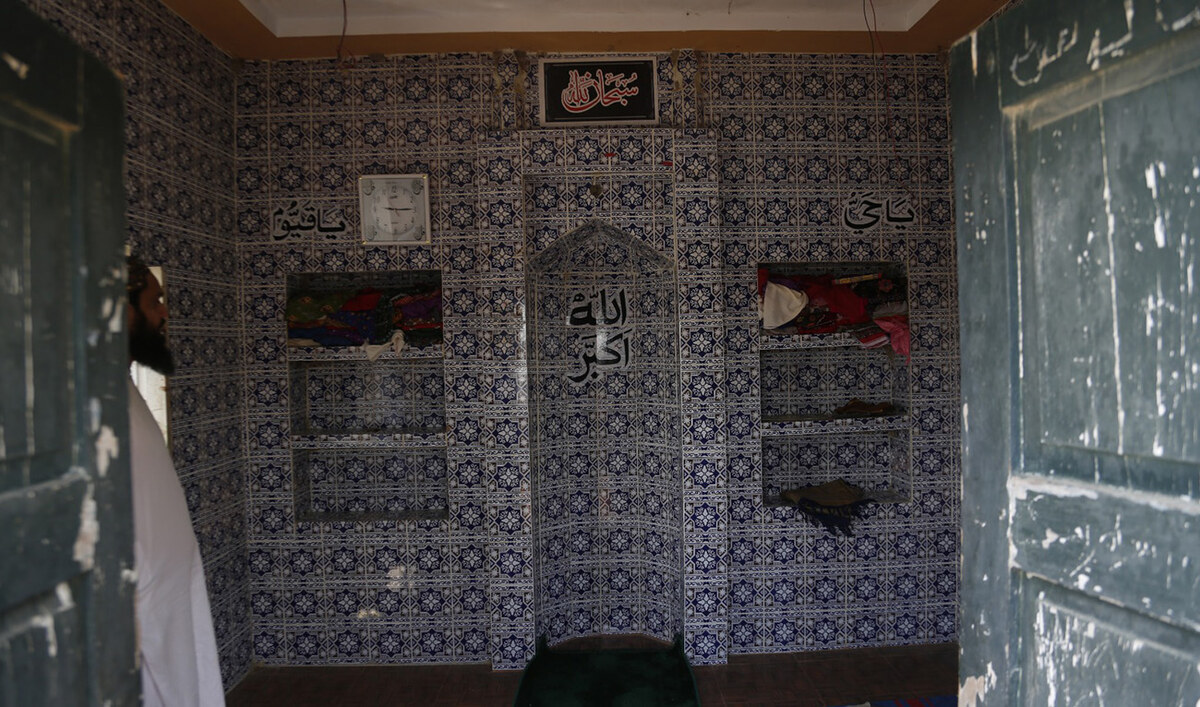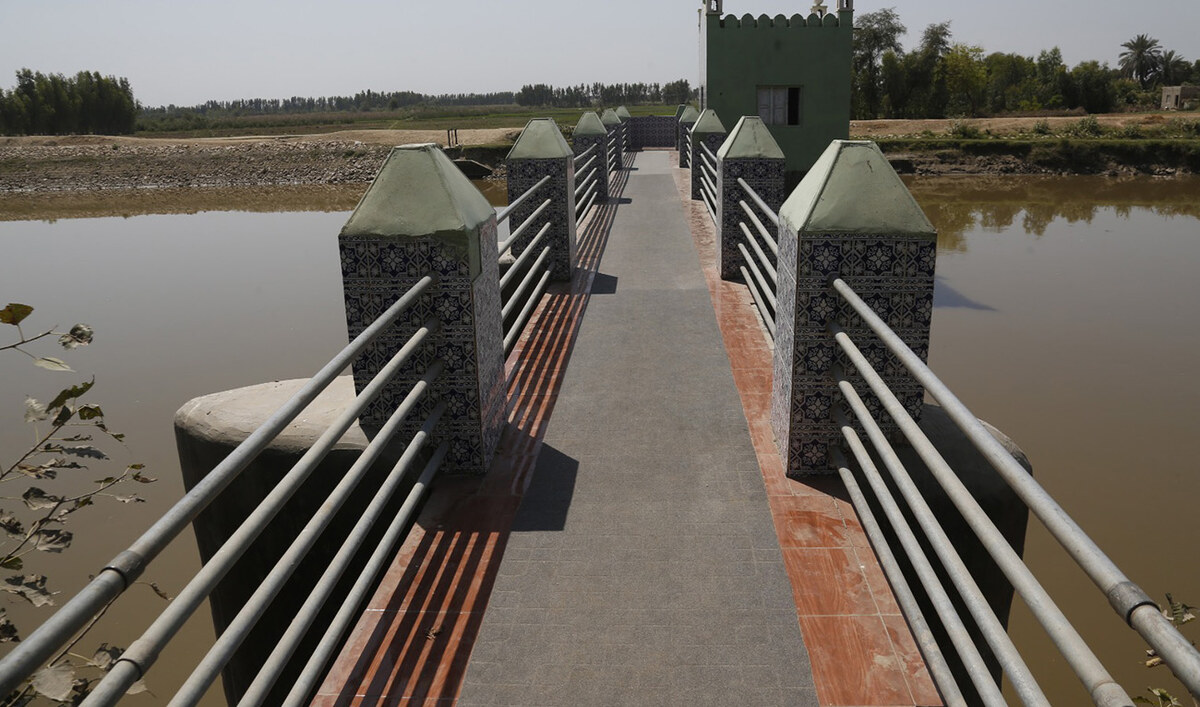ISLAMABAD: Pakistan’s government on Thursday cut mobile phone services across the country as millions voted in a closely watched general election amid multiple crises, including a surge in militancy, with at least nine people, including two children, killed in militant attacks on polling day.
Thousands of troops were deployed on the streets and at polling booths across the country as voting started on Thursday morning. Pakistan also temporarily closed its borders with Iran and Afghanistan.
“As a result of the recent incidents of terrorism in the country, precious lives have been lost, [so] security measures are essential to maintain the law and order situation and deal with possible threats,” the Pakistani interior ministry said, barely minutes before voting opened at 8 a.m.
“Hence the decision has been made to temporarily suspend mobile services across the country.”
On Thursday afternoon, five policemen were killed in a bomb blast and firing on a patrol in the Kulachi area of Dera Ismail Khan district in the northwest, authorities said. Another person died in firing on a security forces vehicle in Tank, about 40 km (25 miles) to the north.
In Balochistan, a soldier from a civilian paramilitary force was killed and 10 others injured in over a dozen blasts caused by grenades or improvised explosive devices, Reuters reported, while two children died in a blast outside a women’s polling station.
No group immediately claimed responsibility for the assaults though attacks by religiously motivated militant groups like the Tehreek-e-Taliban Pakistan (TTP) and ethno-nationalist Baloch insurgents have surged in the run-up to the elections in the nuclear-armed South Asian nation of 241 million.
A day before the polls opened, at least 28 people were killed and over 40 were injured in violence in the southern regions of Pakistan, including two separate blasts targeting election candidate offices in the Balochistan province.
Interior minister Dr. Gohar Ejaz said the polling process had gone “smoothly” with few security complaints except in the Balochistan and Khyber Pakhtunkhwa provinces.
“We have concerns about them but our police, levies and security forces are performing their duties there very actively,” he told reporters.
Some analysts in Pakistan see the communication shut down as an attempt to keep opposition voters from getting information or coordinating activities.
“There is a terror wave in the country so if there is any such decision [to shut mobile networks], please see it in that context,” Caretaker Prime Minister Anwaar-ul-Haq Kakar told reporters.
Bilawal Bhutto-Zardari, the chairman of the Pakistan Peoples Party (PPP), one of Pakistan’s three largest political parties, called for an “immediate restoration” of cellular networks.
PPP Senator Sherry Rehman later said a petition had been filed with the election commission against the mobile phone service suspension and the party would approach the Islamabad High Court also.
“Our major cities are not classified as sensitive,” Rehman told reporters, saying there was no justification for shutting mobile services across the country.
‘PATTERN IS NOT NEW’
The mobile phone network suspension comes as widespread allegations of manipulation and pre-poll rigging have cast a shadow over the general election, a historic event that will mark only the country’s third ever democratic transition of power.
Tensions between civilian politicians, particularly from the Pakistan Tehreek-e-Insaf (PTI) party of jailed former Prime Minister Imran Khan, and the powerful military, which has ruled for over three decades of Pakistan’s history since independence in 1947, are running high as millions of Pakistanis went out to vote. The military strongly denies interfering in politics.
Khan was ousted from the PM’s office by a parliamentary vote of no-confidence in April 2022 and has been in jail since August last year, which has angered his millions of supporters. He is also disqualified from running for public office for ten years and faces dozens of legal challenges, including one case in which he is accused of ordering violent attacks on military installations on May 9, 2023, which could entail the death sentence. Last week, he received three back-to-back jail sentences that could see him spend the next three decades in jail.
In the run-up to the polls, Khan’s PTI also complained of a widening crackdown against the party, including not being allowed to campaign freely, and questions surround the legitimacy of an election that Khan, the main opposition leader and arguably the country’s most popular politician, cannot contest.
Khan’s key challenge is expected to come from the Pakistan Muslim League-Nawaz (PML-N) party of three-time former Prime Minister Nawaz Sharif, who returned to Pakistan last year from self-imposed exile to lead the party ahead of national elections.
In the last election in 2018, it was Sharif’s PML-N that widely complained of rigging and manipulation. A year earlier, Sharif had been ousted by the Supreme Court as prime minister and disqualified for life from running for public office. He later left for the United Kingdom after being granted medical bail and declined to return.
But as he came back to Pakistan in October last year, corruption convictions against him evaporated and the bar to contest polls was lifted. The three-time former premier is now widely seen as the frontrunner in elections, with an edge over rivals due to the backing of the military.
Sharif has denied the generals have thrown their weight behind him.
Chief Election Commissioner Sikandar Sultan Raja rejected there were any favorites and said elections were being conducted “fairly.”
“Voters will be able to vote freely for their candidates of choice,” he said on Thursday morning.
‘MY PRINCE’
But many observers believe the results are predetermined.
“Each time, one party or another has been targeted as the party that must be kept out of power and this time that party is PTI,” Husain Haqqani, a former Pakistani ambassador to the United States and currently a scholar at Washington’s Hudson Institute, told Arab News. “The military usually proceeds by defining an enemy and that enemy right now is Imran Khan.”
“The pattern is not new nor are the [security] establishment’s tactics,” he said, adding that the PTI’s vast social media presence and the celebrity status of its leader were amplifying the controversy more than in the past.
“Pakistan seems stuck with the hybrid model of partial democracy and military intervention. That will not change with this election. The only issue is whether Imran Khan’s popularity will dent the next hybrid regime’s ability to function effectively,” Haqqani added.
Sarwar Bari, National Coordinator at the not-for-profit Pattan Development Organization, said the 2024 election was peculiar in the “very transparent” nature of the manipulation and intimidation taking place.
“In the past, it used to be very subtle,” he told Arab News. “But this is unprecedented, at this level, so intense and widespread rigging, Pakistan’s establishment has broken its record.”
“I have been saying that this election is neither free nor fair,” Bari added, “but it is an absolutely transparent election because whatever is happening is happening in the clear light of day.”
At a polling station in Islamabad, an elderly woman, who declined to be named, said she was voting for “Khan and only Khan.”
“I am voting for the one who is being suppressed,” she told Arab News. “He is my prince, my son.”
But Dr. Goodluck Jonathan, who is in Pakistan to head the Commonwealth Observers mission, said he was “pleased” with election arrangements, and had observed calm at the polling stations he visited.
“I believe that by the end of the day the people of Pakistan will be happy,” he told reporters. “On Sunday we will give a comprehensive report on this election.”
* With additional inputs from Aamir Saeed in Islamabad























